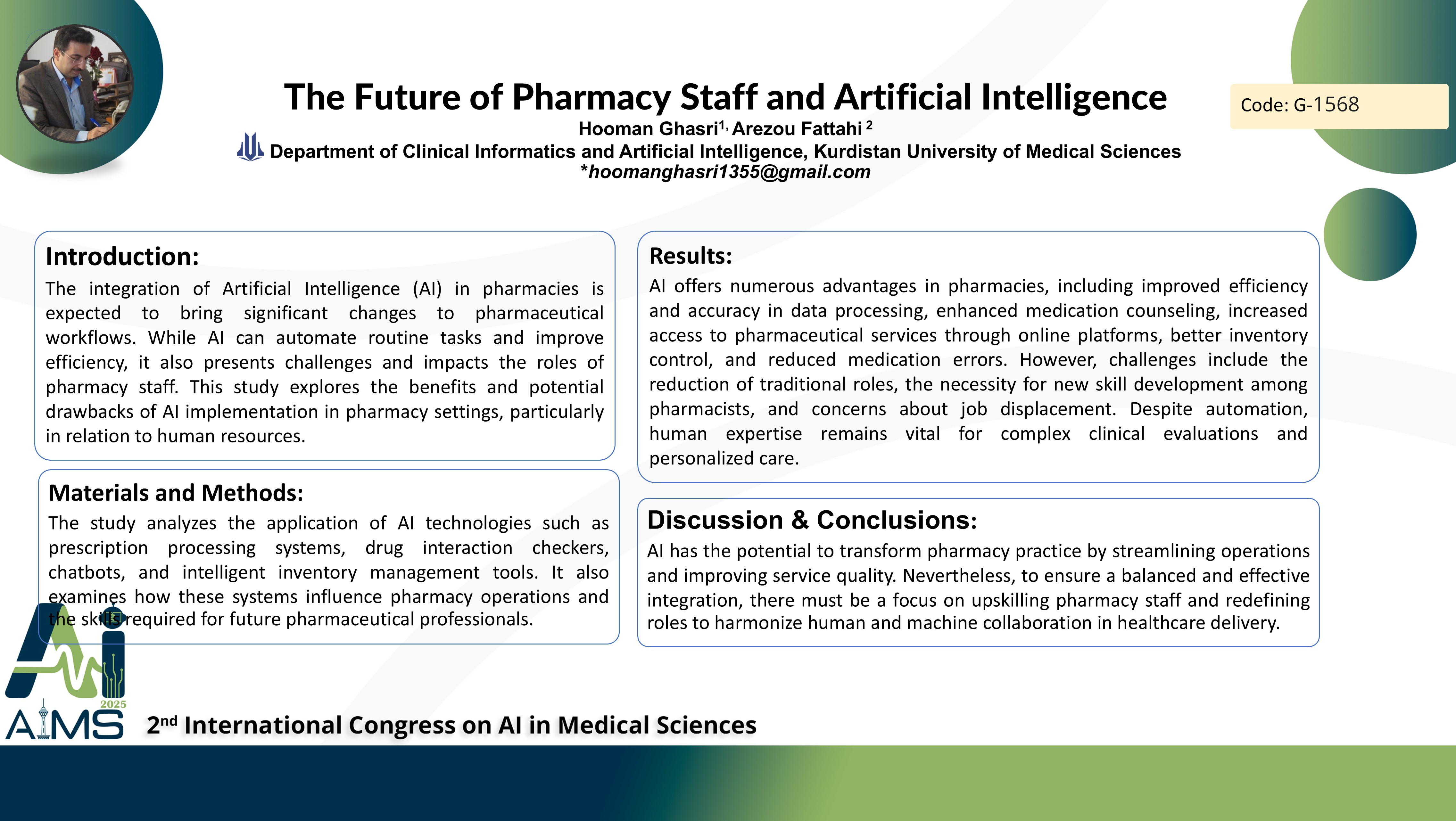آینده کارکنان داروخانه ها و هوش مصنوعی
کد: G-1568
نویسندگان: Arezou Fattahi, Hooman Ghasri * ℗
زمان بندی: زمان بندی نشده!
برچسب: سیستم های تصمیم یار بالینی
دانلود: دانلود پوستر
خلاصه مقاله:
خلاصه مقاله
Background and Aims: The integration of Artificial Intelligence (AI) in pharmacies is expected to bring significant changes to pharmaceutical workflows. While AI can automate routine tasks and improve efficiency, it also presents challenges and impacts the roles of pharmacy staff. This study explores the benefits and potential drawbacks of AI implementation in pharmacy settings, particularly in relation to human resources. Method: The study analyzes the application of AI technologies such as prescription processing systems, drug interaction checkers, chatbots, and intelligent inventory management tools. It also examines how these systems influence pharmacy operations and the skills required for future pharmaceutical professionals. Results: AI offers numerous advantages in pharmacies, including improved efficiency and accuracy in data processing, enhanced medication counseling, increased access to pharmaceutical services through online platforms, better inventory control, and reduced medication errors. However, challenges include the reduction of traditional roles, the necessity for new skill development among pharmacists, and concerns about job displacement. Despite automation, human expertise remains vital for complex clinical evaluations and personalized care. Conclusion: AI has the potential to transform pharmacy practice by streamlining operations and improving service quality. Nevertheless, to ensure a balanced and effective integration, there must be a focus on upskilling pharmacy staff and redefining roles to harmonize human and machine collaboration in healthcare delivery.
کلمات کلیدی
Artificial Intelligence, Pharmacy Automation, Digital Pharmacy
